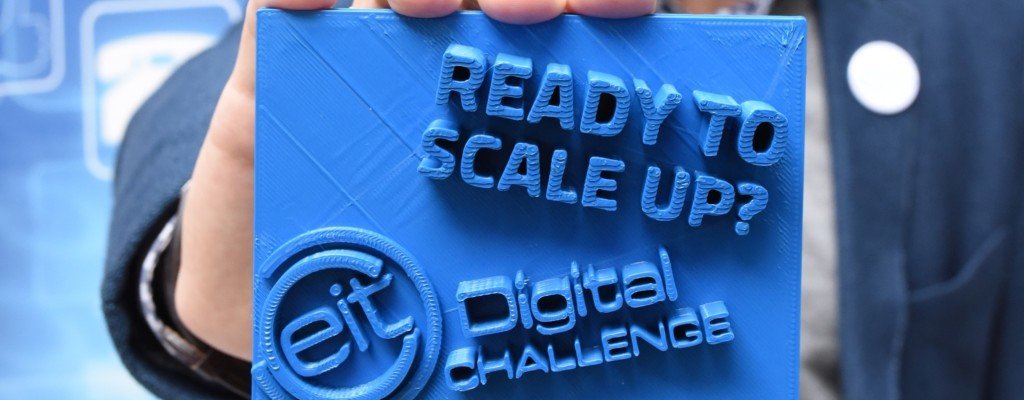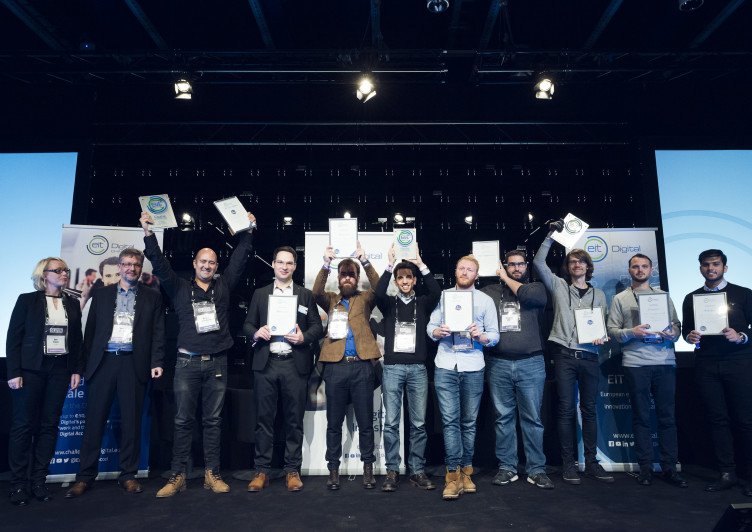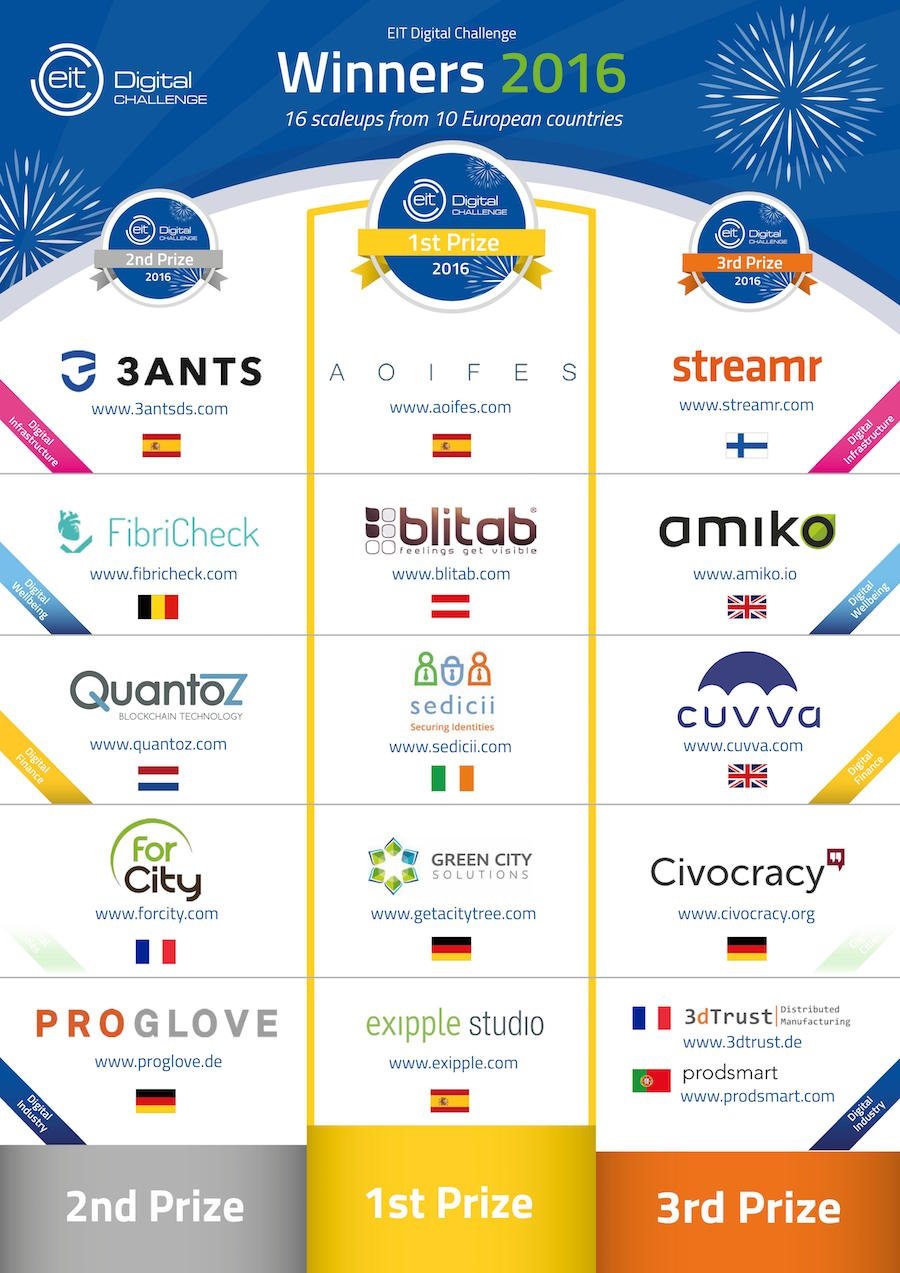Editor's note: This is a sponsored article, which means it’s independently written by our editorial team but financially supported by another organisation, in this case, EIT Digital. If you would like to learn more about sponsored posts on tech.eu, read this and contact us if you’re interested in partnering with us.
Yours truly just returned from cold, dark and amazing Helsinki, where the annual Slush conference was held. I'll summarise it for you: if you've never been, mark 30 November 2017 in your calendar for the next edition. And if you've ever been, you've done that already I'm sure.
Besides a fantastic conference, Slush is also a popular place for startups and scale-ups to launch and/or present their wares. Rocket Internet, Google and McKinsey announced their Digital Top 50 award winners, while Slush organised a thrilling startup competition of its own.
Also at Slush 2016 was EIT Digital, the pan-European open innovation organisation that helps startups grow with a combination of business support, mentoring, capital and access to its extensive network.
Among other things, EIT Digital picked Slush as a venue to award the winners of the EIT Digital Challenge, which showcases top European technology companies across five categories: 'Digital Cities', 'Digital Industry', 'Digital Wellbeing', 'Digital Infrastructure' and 'Digital Finance'.
Below are all the winners (16, and not 15, as the jury found it too hard to decide in the 'Digital Industry' category) awarded by EIT Digital Challenge. If you would like to meet them, you should go to Berlin next Monday, where EIT digital is showcasing them at its Ignition Night, a unique networking event. tech.eu will be there as well!
Digital Industry
Exipple Studio (Spain): its Artificial Intelligence Platform ‘Gestoos’ uses a machine learning mechanism to detect people's behaviour and gestures. Customers can create products that understand human behaviour in specific contexts and enable gestural interactions with physical objects.
ProGlove (Germany) is a smart glove that combines wearable high-technology and the “Internet of Things” to make manual work in manufacturing and logistics more efficient.
3dTrust (France) aims to support companies to better integrate 3D printing into their operations by providing a digital network ensuring the protection of intellectual property and guaranteeing the traceability of the printed parts.
Prodsmart (Portugal) is a real-time information system that analyses production lines and job shops in real-time and turns any production plant into a digital smart factory.
Digital Cities
Green City Solutions (Germany) created the CityTree, a freestanding 4x3 m unit combining smart sensors with real plants. The construction has the same effect as up to 275 regular urban trees, but requires 99% less space and 90% less investment.
ForCity (France) offers a collaborative platform where public authorities and project owners can visualise and combine their plans for city infrastructures in 4D to simulate their ideas for the city of the future.
Civocracy (Germany) is a B2B online platform that aims to enable meaningful interaction between societal stakeholders such as local governments, organizations, citizens and businesses in order to foster participation, collaboration and transparency.
Digital Wellbeing
BLITAB Technology (Austria) is the world’s first tablet device that creates tactile Braille and graphics for blind and visually impaired people in real-time by using small physical bubbles instead of a screen display, thereby improving the social wellbeing and digital inclusion.
Qompium (Belgium)'s application FibriCheck detects cardiovascular arrhythmia's via a smartphone app. Patients only have to place their finger for 60 seconds on the camera of their smartphone to detect the pulse waveform.
Amiko Digital Health (UK) is a healthcare technology company that develops innovative integrated solutions that make use of sensor technologies and mobile systems to measure and improve adherence to inhalable, injectable and oral therapies.
Digital Infrastructure
AOIFES (Spain) has developed the Cognitive Hotspot™ Technology (CHT) that enhances the spectral efficiency of WiFi systems and increases its performance, while reducing interference levels and power consumption.
3antS Development & Strategies (Spain)’s technology detects and eliminates illegal uses of online intellectual property. It follows pirated content and goods online as a crawler, based on machine learning techniques, automatically geo-locating them and forcing their withdrawal.
Streamr (Finland) provides a cloud-based platform that makes it easy for companies and developers to create micro-services that process streaming data in real-time. The process is simple: Data flows in, gets processed as a service, and actions or visualizations come out.
Digital Finance
Sedicii Innovations (Ireland) eliminates the transmission, storage and exposure of identity data during an authentication or identity verification process. This allows for the secure consumption of digital services in a privacy-preserving manner.
Quantoz Technology (Netherlands)'s Quasar Digital Cash Solution provides the infrastructure for instant payment and transaction settlement between enterprises, people and the Internet of Things while being compliant with regulations.
Cuvva (UK) offers a new type of car insurance. People who borrow a car from friends or family can use the mobile application to book a car insurance for a short period of time starting from a single hour to a whole day.
Last but not least, I caught up with Dominik Krabbe, who heads the EIT Digital Challenge, for a short but sweet interview at Slush in Helsinki. Apologies for my poor voice!





Would you like to write the first comment?
Login to post comments